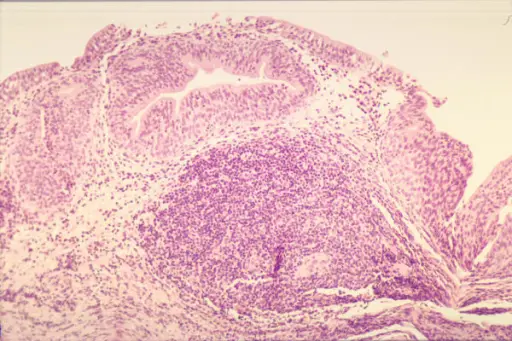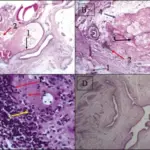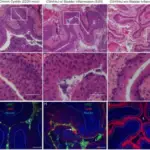Acute cystitis is an infection of the bladder or lower urinary tract.
What is the Pathology of Acute Cystitis?
The pathology of acute cystitis is:
-Etiology: The cause of acute cystitis is typically caused by Escherichia coli, Staphylococcus saprophyticus, and Klebsiella species.
-Genes involved: IL-1β
-Pathogenesis: The sequence of events that lead to acute cystitis in women begins with the colonization of the vaginal introitus by uropathogens from the fecal flora, followed by ascension via the urethra into the bladder and, in the case of pyelonephritis, to the kidneys via the ureters.
-Morphology: The morphology associated with acute cystitis is not clear.
-Histology: The histology associated with acute cystitis usually shows neutrophils.
How does Acute Cystitis Present?
Patients with acute cystitis typically affect females 16-35 years of age. The symptoms, features, and clinical findings associated with acute cystitis include burning with urination, and frequent urination.
How is Acute Cystitis Diagnosed?
Acute cystitis is diagnosed with a urine dipstick test.
How is Acute Cystitis Treated?
Acute cystitis is treated empirically with antibiotics.
What is the Prognosis of Acute Cystitis?
The prognosis of acute cystitis is excellent with proper treatment.



